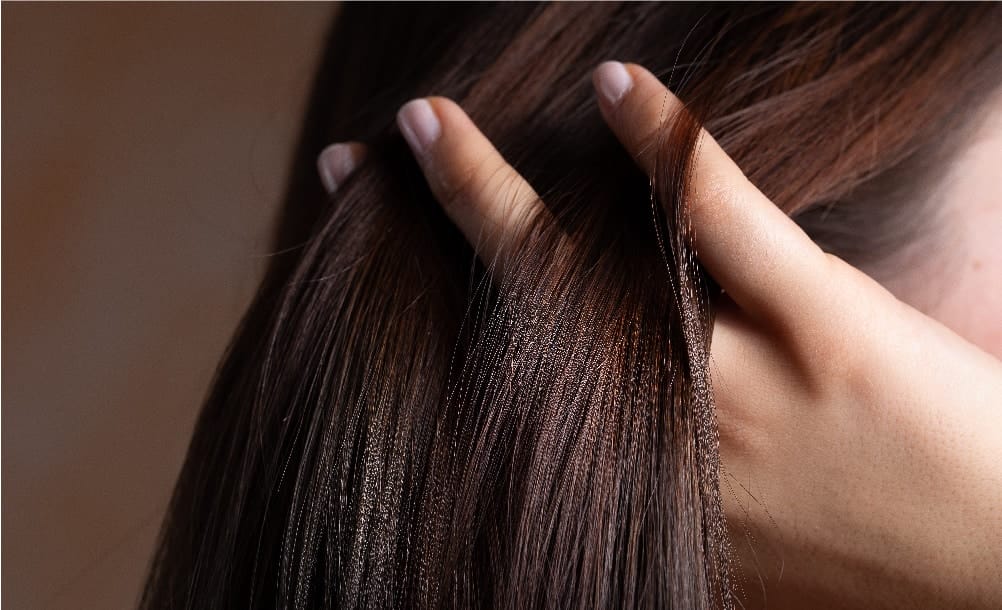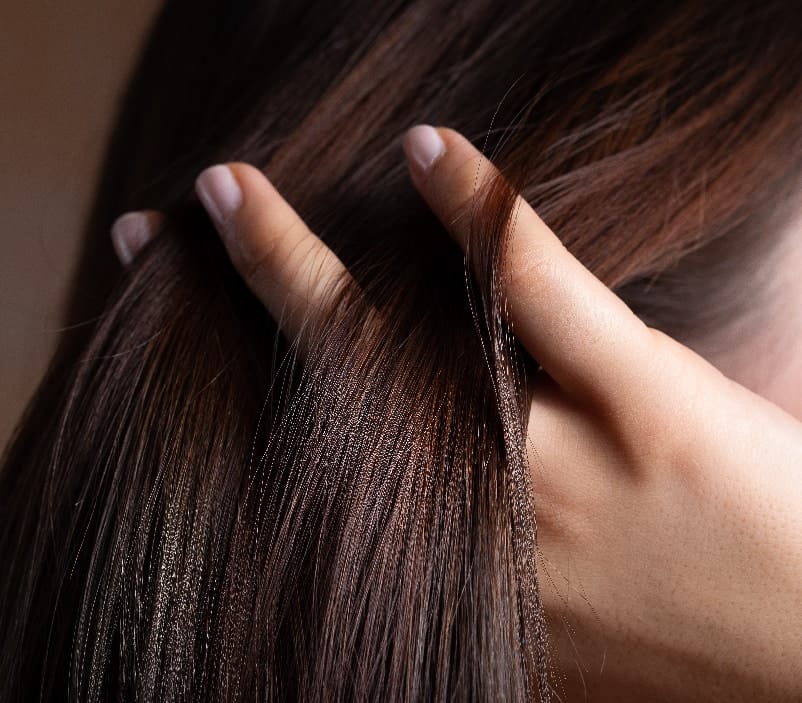
The health of your hair is also a clear indication of the soundness of your body – it is foremost that you give it the attention it deserves. While genetics do play a role, the lusciousness of your hair, to a large extent, lies in your hands. From your hair wash schedules to your diet and hair care routines, every bit of your lifestyle affects the well-being of your hair, and thereby your physical health as well. There are a wide range of tips and precautionary methods to help boost your hair health and ensure robust hair through Ayurveda and simple home remedies.
Causes of Hair Health Deterioration
Starting with improper Aahar (diet), the food you consume affects your body and mind. Extreme palate differences in terms of spice and sugar, excessive consumption of caffeine, overload of fat and carbonated drinks, animal protein, etc., have a negative impact on your hair, weakening your roots. Taking on immense
stress and stress-induced anxiety could also lead to deterioration of hair health along with consumption of alcohol and smoking. Considering the current technology-driven world with expansive night-lives, not following the principle of Dincharya (daily routine), in terms of both sleep and physical activity, has become rather common leading to various issues. Apart from these factors, pollution (Ritucharya), heat, and improper hair treatment, done more often than not due to false information or to achieve a certain look, also plays a vital role in damaging one’s hair. Overall, it boils down disturbance of Trisdosa, the root cause of most of these diseases and disorders.

Symptoms of Reduced Hair Health
Almost all symptoms of reduced hair health can be seen on the exterior. Being in plain sight, noticing these changes is simple and straightforward allowing you the chance to make the situation right. Beginning with hair fall, a direct sign of deteriorating strength and soundness, it is one of the very first and most detectable symptoms of the lot. In Ayurveda, gradual falling of hair is termed as ‘Khalitya.’ It comes under the heading of Kshudra Roga (minor disease) or Shiroroga (diseases of head & scalp). Extreme hair fall could further lead to balding (Indralupta), a serious concern for many. This scenario is usually caused due to elevated Pitta along with Vata Dosha and Rakta Kapha Dushti. It is also crucial to make note of any dry or limp hair bringing with it a reduction in shine, lustre, and strength. Having said that, these could be accompanied by dandruff (Darunaka) and dry scalp, making you itchy and uncomfortable. Lastly, stress and anxiety are also known to lead to premature greying (Palitya), another highly noticeable factor in showcasing the state of your hair.
Preventative Methods to Experience Nourished Hair
Experiencing a few of these symptoms? Well, not to worry! As the primary reason for hair loss is due excess Pitta Dosha in the body, maintaining your pitta level is what is needed to overcome these issues. Incorporating basic lifestyle changes such as regular washing and oiling of hair and scalp massages with ghee are one of the simplest hair growth tips to reduce hair fall and dandruff. With the amount of pollution one faces daily, it is foremost that you create and maintain a schedule, whether it is exercise and yoga or dietary habits. Fixing your routine has an immense impact on your hair health as well as your body. Utilising amla, fenugreek seeds, neem, and bringaraj either as a hair mask, oil, or even as oral intake is known to do wonders in restoring your hair’s strength and lustre. Rice, vinegar, and hibiscus water rinse once a week is another highly recommended method to add shine to your hair. Furthermore, consuming protein and vitamin-rich items such as spinach, green gram, soya bean, milk, butter buttermilk and ghee along with nuts, high fibre vegetables and sprouts are the best foods for hair growth, nourishment of hair follicles and reduction in inflammation.
As the last step, ensure to exercise and indulge in yoga and other physical activities. Divided into three segments or doshas, each requires a specific set of practices.

























